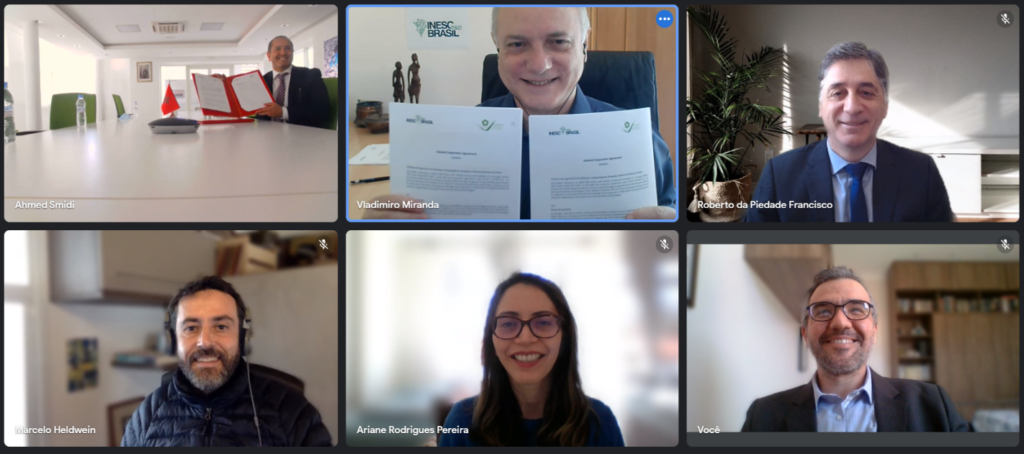São Paulo – Brazilian researchers will transfer technology on the manufacture of chargers for battery electric vehicles. The agreement was penned last Thursday (29) between INESC P&D Brasil and Green Energy Park (GEP) of Morocco. INESC is a non-government organization whose members are several Brazilian public universities and the Institute for Systems and Computer Engineering, Technology and Science (INESC TEC). The Moroccan institution is a partnership between OCP Group and IRESEN, the Moroccan government’s research institute for renewable energies.
INESC P&D Brasil president Vladimiro Miranda explained that this isn’t the first partnership between the network and Morocco. In another project started in the pandemic, Brazilian, Portuguese and Moroccan researchers worked together on vita pneuma, a device used in COVID-19-related emergency cases. The triangular cooperation involved exchanging information and developing products according to the specific requirements of each country.
This time, the partnership will be directly between Morocco and Brazil expands into the mobility industry. “The previous project turned out to be reliable and successful, so we were invited to cooperate in other projects. Our challenge is now helping Morocco manufacture fast chargers for electric vehicles,” Miranda explained.
The president points out that the Arab country is known for investing in renewable energies, such as electric vehicles. “Morocco is a country with a highly advanced energy mix, including wind and solar power. They have an electric mobility plan and want to reach decarbonization,” he said. A major part of the plan for encouraging the use of electric vehicles is preparing charging stations, the point being that, with a structure spread across the country and ready to charge cars, brands and consumers feel confident to invest in new vehicles.
In Brazil, the efforts for the project will be concentrated on the team of the Power Electronics Institute (INEP) at the Federal University of Santa Catarina (UFSC), a major partner of INESC Brasil. “Thanks to the experience of this group, we can offer an expertise for the industrial development,” Miranda explained. The project will be funded by the Moroccan government.
The cooperation is slanted to last for nine months and aims at developing chargers that can be used for several vehicles. The INESC’s president said that Morocco’s government also has projects to develop their own vehicles.
Most contacts between Moroccans and Brazilians will take place remotely, but when the COVID-19 pandemic is under control, scientist exchanges are expected to occur. “The prototype will be developed in Brazil, and a ‘twin’ will be created in Morocco. The acquisition of equipment will take place in Brazil. When traveling is safer, Brazilian researchers will to go to Morocco, and vice versa,” he said.
In addition to the agreement, the online ceremony included another project for joint research and development that will cover a larger cooperation plan between Brazilians and Moroccans.
Translated by Guilherme Miranda




